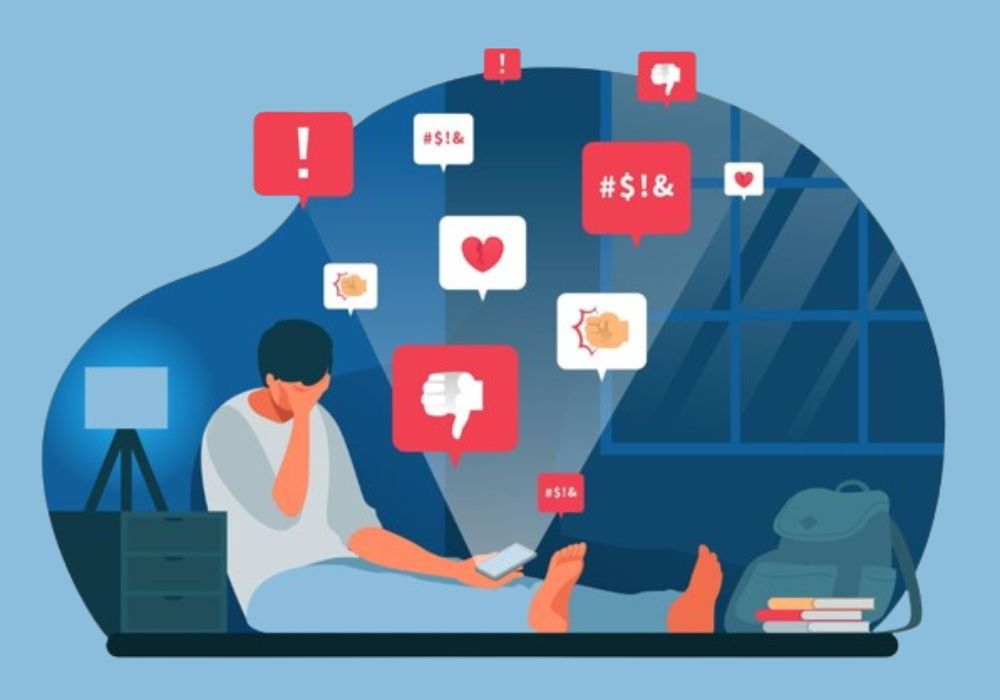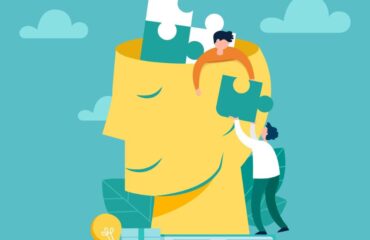In today’s digital age, social media has become an integral part of our daily lives. With platforms like Facebook, Instagram, Twitter, and TikTok, we are more connected than ever before. However, this constant connectivity comes with its own set of challenges, particularly concerning mental health. While these platforms offer opportunities for self-expression, communication, and networking, they also have potential downsides that can impact an individual’s well-being. In this blog, we’ll explore how social media affects mental health, both positively and negatively, and what steps can be taken to mitigate any adverse effects.
The Impact Of Social Media On Mental Health
1. The Positive Side Of Social Media
Social media is not all bad; it offers several benefits that can positively influence mental health. For instance, these platforms provide an opportunity for people to connect with others, share experiences, and seek support. Online communities can be especially beneficial for those dealing with issues like anxiety, depression, or chronic illnesses, as they offer a space to discuss problems with like-minded individuals. Additionally, these platforms can promote mental well-being by spreading awareness about mental health issues and encouraging people to seek help.
2. The Dark Side: Anxiety And Depression
Despite its positive aspects, social media can also contribute to mental health issues like anxiety and depression. The constant comparison with others, cyberbullying, and the pressure to present a perfect image can lead to feelings of inadequacy, low self-esteem, and social anxiety. Studies have shown that excessive use of these platforms is linked to increased levels of anxiety and depression, particularly among young adults and teenagers. The curated lives presented online can create unrealistic expectations and a distorted view of reality, exacerbating feelings of loneliness and despair.
3. The Role Of Sleep And Addiction
Another significant impact of social media on mental health is its effect on sleep patterns. The blue light emitted from screens can interfere with the production of melatonin, a hormone that regulates sleep. This can lead to poor sleep quality and, in some cases, insomnia. Moreover, the addictive nature of these platforms keeps users hooked, often leading to prolonged screen time and disrupted sleep schedules. Lack of sleep, in turn, can worsen mental health conditions, creating a vicious cycle that is hard to break.
4. Cyberbullying And Online Harassment
Cyberbullying is a pervasive issue on social media, and it can have severe consequences on mental health. Victims of cyberbullying often experience increased anxiety, depression, and in extreme cases, suicidal thoughts. The anonymity that the internet provides can embolden individuals to engage in harmful behaviors that they might not display in person. Furthermore, the public nature of these platforms can amplify the impact of bullying, making it more challenging for victims to escape or seek help.
5. Strategies For Healthy Social Media Use
While the negative impacts of social media on mental health are concerning, there are ways to use these platforms in a healthier manner. Setting time limits on usage, curating a positive and supportive online environment, and taking regular digital detoxes are all effective strategies. Additionally, being mindful of the content consumed and engaging in meaningful interactions can help mitigate the adverse effects. Encouraging open discussions about mental health and seeking professional help when needed are also crucial steps towards ensuring that social media usage does not negatively impact well-being.
Conclusion
Social media has a profound impact on mental health, offering both positive and negative effects. While it provides a platform for connection and support, it also poses risks such as anxiety, depression, and cyberbullying. By adopting healthy habits and promoting mental health awareness, we can harness the benefits of these platforms while minimizing their potential harm. As we continue to navigate the digital landscape, it’s essential to remain conscious of how social media influences our mental well-being and take proactive steps to protect it.





